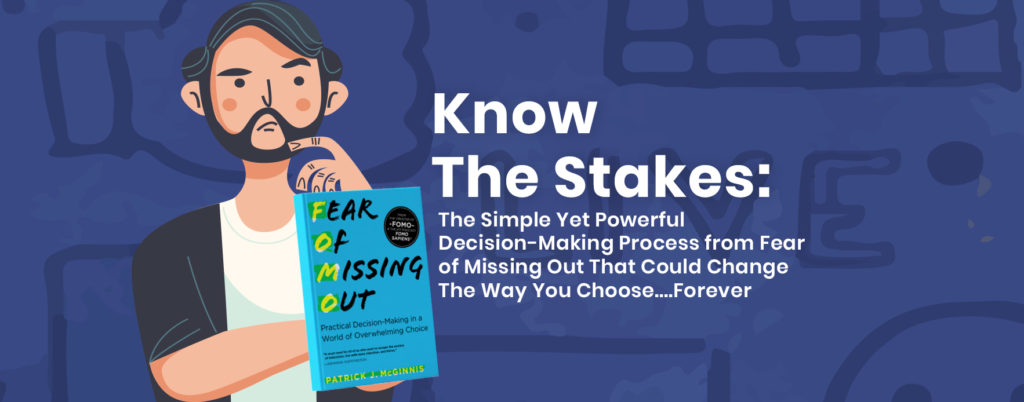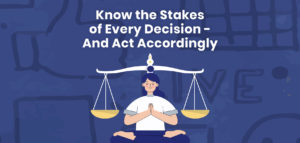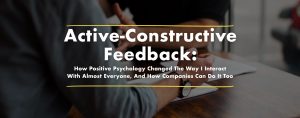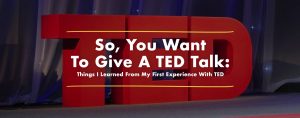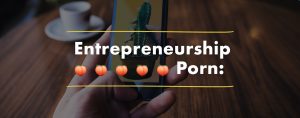It’s been just under a month since my new book Fear Of Missing Out: Practical Decision-Making In A World Of Overwhelming Choice came out, and the response has been amazing: from the launch party moderated by my friend Nir Eyal to the positive reviews and reactions on social media, one thing has been made clear to me: FOMO and FOBO are as relevant as ever, and every one of us wants more tools and hard facts about how to negotiate these forces of the modern landscape that threaten our careers, finances, and relationships.
If you haven’t already picked up your copy, I urge you to do so- and not just because I wrote it (although, I’ll be honest, there’s certainly that). As I write this, my country (the United States) is in an unprecedented state of upheaval for a variety of reasons and to be honest, sometimes it feels like we’re barely holding it together- and whether that perception is completely accurate, it feels that way for huge numbers of us, who now perceive that we are facing an incredibly uncertain, fragile, and stress-inducing future. In the face of these kinds of emotions, humans- all of us- tend to revert to some of our most basic emotional and instinctive responses. As I discuss in the book and in previous articles, FOMO and FOBO are natural consequences of “modern,” highly-developed societies and are an exaggerated version of naturally-evolved human instincts to keep us connected to our communities and stay informed of developments in life-threatening environments.
The point is, the more scared and uncertain we are, the more our decision-making tends to become unconsidered, reactive, and emotionally-driven: perfect ground for FOMO and FOBO’s toxic flowers to bloom. On a recent episode of the FOMO Sapiens podcast, data scientist Seth Stephens-Davidowitz reminded us that despite our ability in 2020 to sweep up jaw-dropping amounts of data about everything humans do, we often continue to make poor or harmful decisions (individually, organizationally, and publicly) because we fail to interpret even “big data” without our preconceptions of truth getting in the way.
I believe that for all our lives to get better- individually and collectively- an important piece of the puzzle involves becoming a lot more self-aware about what drives our decisions, and being equipped with realistic, effective tools for keeping our best selves in the driver’s seat.
In Fear Of Missing Out, I explore a few such tools that help us to spot, halt, and control our FOMO and FOBO. All of them require us to start by looking critically at the available information governing our choices- and that begins with understanding the stakes.
Know the Stakes of Every Decision – And Act Accordingly
Whether or not to get married, invest your life savings in something, or jump out of an airplane are choices that can change the rest of your life- wonderfully or disastrously- forever. Choosing between pizza or Chinese food for dinner is extremely unlikely to have any impact on your life, past the moment you’ve eaten the last bite of pepperoni or General Tso’s chicken.
You have a limited amount of time and mental energy to spend on all the decisions you make each day. When you exhaust that energy before the day’s choices are done, you don’t have the strength to keep your hands on the wheel- and FOMO and FOBO are happy to take over.
When you’re faced with a decision you’re unable to make immediately, sort it into one of three categories: High-Stakes, Low-Stakes, and No-Stakes. In the book, I offer the following series of questions as a tool to help you do that:
- Is it ephemeral? Will you have forgotten making this decision in a week (for No-Stakes Decisions) or a month (for Low-Stakes Decisions)?
- Does the decision have insignificant consequences in terms of money, time, or its impact on yourself and others?
- Can you abide by (survive and live with) your choice, no matter what the outcome?
If all of these can be answered “yes,” this particular choice is a Low Stakes or No Stakes Decision, and all the additional time devoted to pondering it is wasted and probably counterproductive or unhealthy.
Today I’m going to outline actionable processes for tackling No-Stakes and Low-Stakes Decisions: High-Stakes Decisions are a bit more complicated, and worthy of their own discussion in a later article- but I feel that it’s at least as urgent to address the first two right away.
Why do I think it’s as urgent to master No-Stakes and Low-Stakes Decisions as it is to effectively navigate life-altering the High-Stakes moments? Because there are so many of them! The vast majority of choices we make in life are not High-Stakes- even for fighter pilots, brain surgeons, and world leaders- which means that the “little guys” actually exert an outsized influence on our well-being through their potential to waste enormous amounts of aggregate time and trigger more anxiety and decision paralysis than they’re worth, over and over, every day.
These choices should be made quickly and decisively, and here’s techniques for outsourcing a choice that hangs around longer than it needs to:
For No-Stakes Decisions, Ask The Watch.
This is the technique I discuss in my TED Talk, “How To Make Faster Decisions,” as well as in the book. Essentially, you’ll be knocking down the cloud of options to two choices you can live with (a binary choice) and using a random tool to settle on one, and be DONE with it. As you get used to this method, you’ll find it quicker and more natural to deploy it whenever you find yourself agonizing over trivia- and you’ll also develop the instincts to quickly dispense with those choices even without flipping a coin.
Watch the video in the above link, try it on some of your obvious No-Stakes Decisions, and you’re already on the way to reclaiming time and sanity from the horde of FOMO and FOBO gremlins these decision points represent.
For Low-Stakes Decisions, Ask Your Squad.
Despite the name, Low-Stakes Decisions can be the worst in terms of triggering FOMO or FOBO. Because they’re not clearly No-Stakes choices, we can agonize over whether they’ve been given the proper weight. At the same time, they’re more likely to actually make us stop and fuss over them than No-Stakes Decisions, because far more of them will rise to our conscious awareness and potentially bring us to a halt.
To tackle these, you need more than random selection- you need an informed decision, but one that’s going to be quick and unburdened by the emotion of the moment. You need a squad: a reliably available circle of people that you consider informed enough to make choices as competently as (or better than!) you, and who you trust to act in your best interests. When you’re faced with a Low-Stakes Decision (but not a No-Stakes one- don’t burn the good will of your squad on time-wasters!), present a member of your squad with your dilemma in the form of a closed question (“Do you think I should buy this printer or that one?”) if you just need help choosing between two satisfactory alternatives or an open question (“What do you think of this job offer?”) if you need your squad to help you see more of the problem or consider options you hadn’t thought of.
Again, don’t approach your squad with No-Stakes Decisions, and don’t approach them to make High-Stakes Decisions for you (though you can ask them to help make sure you’ve considered everything). There’s nothing wrong with outsourcing choices that you’re just not going to make in an economical amount of time or energy; at the same time, you don’t want to surrender decision-making on life-altering choices.
I explore this process in rich detail in Fear of Missing Out; if you want to understand this technique and the psychology behind it in a deeper way, pick up a copy! For now, if nothing else, I hope I’ve made the point that every choice in life- whether the infuriating march of a thousand trivial things, or the decisions that alter the course of our existence- can be tackled in a systematic, information-driven way, letting us make every choice with wisdom, clarity, and peace.
In my next article, I’ll devote the discussion to High-Stakes Decisions: choices that have long-lasting implications with serious positive or negative consequences. Just like the No-Stakes and Low-stakes choices we’ve discussed today, you’ll see that they can also be tackled in a systematic, rational, intentional way.
Happy decision-making!

